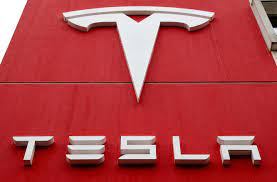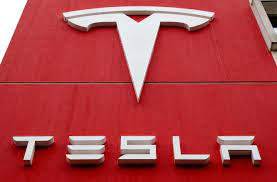
After a closely followed Morgan Stanley analyst cut his price target on the company, stating that despite significant price reductions, demand for electric vehicles was still declining in important markets, notably China, Tesla's shares saw a third day of declines.
After Tesla's poor February sales in China heightened worries about slowing growth and escalating competition, Morgan Stanley and other analysts lowered their expectations for the company's delivery timeline.
Adam Jonas stated, "The China EV market is over-supplied, witnessing a barrage of price cuts," predicting a sustained pricing war this year.
"While Tesla may be the most technologically advanced car company in the world, its product line-up may be the oldest of any major OEM (original equipment manufacturer), with nearly all of its lineup launched prior to COVID," he said.
His target price for Tesla's stock was lowered from $345 to $320. After cutting losses, the shares dropped 1.3% to $178.35. This week, Tesla's share price has dropped by almost 11%, wiping off over $70 billion in market value.
The world's largest seller of electric vehicles, BYD, is a Chinese company that has overtaken Tesla. On Wednesday, it intensified a fierce pricing war in China by slashing the price of its lowest-priced model, the Seagull, by 5%.
Tesla plans to release its more affordable next-generation models late in the following year. It redesigned the Model 3 compact sedan this year and released it in the US with few outward cosmetic modifications.
Elon Musk, the CEO of Tesla, announced the Cybertruck, but stated that mass manufacturing would not begin until the following year.
Analyst Matt Portillo of Tudor Pickering stated, "Tesla needs a mass market vehicle to justify the valuation of the equity today, and the Cybertruck is obviously not going to be that solution."
He added that Musk's failure to fulfil his long-standing pledge to achieve complete autonomy had hurt the stock.
Tesla began cutting prices to increase demand more than a year ago, but the company predicted "notably lower" growth in deliveries this year in January.
The previous year has seen a decline in demand as rising interest rates have made people reconsider large purchases like electric cars, exacerbating already-existing worries about EV prices, charging times, and battery life
According to analysts, supply chain interruptions caused by the Red Sea assaults, suspicions of arson at Tesla's Berlin facility, and plant downtime in California to get ready for the new Model 3's manufacturing are likely to hinder the company's first-quarter deliveries
The setting for Q1 was made more complex by a number of one-time production disruptions, according to a separate note from Baird Equity Research analyst Ben Kallo.
(Source:www.nasdaq.com)
After Tesla's poor February sales in China heightened worries about slowing growth and escalating competition, Morgan Stanley and other analysts lowered their expectations for the company's delivery timeline.
Adam Jonas stated, "The China EV market is over-supplied, witnessing a barrage of price cuts," predicting a sustained pricing war this year.
"While Tesla may be the most technologically advanced car company in the world, its product line-up may be the oldest of any major OEM (original equipment manufacturer), with nearly all of its lineup launched prior to COVID," he said.
His target price for Tesla's stock was lowered from $345 to $320. After cutting losses, the shares dropped 1.3% to $178.35. This week, Tesla's share price has dropped by almost 11%, wiping off over $70 billion in market value.
The world's largest seller of electric vehicles, BYD, is a Chinese company that has overtaken Tesla. On Wednesday, it intensified a fierce pricing war in China by slashing the price of its lowest-priced model, the Seagull, by 5%.
Tesla plans to release its more affordable next-generation models late in the following year. It redesigned the Model 3 compact sedan this year and released it in the US with few outward cosmetic modifications.
Elon Musk, the CEO of Tesla, announced the Cybertruck, but stated that mass manufacturing would not begin until the following year.
Analyst Matt Portillo of Tudor Pickering stated, "Tesla needs a mass market vehicle to justify the valuation of the equity today, and the Cybertruck is obviously not going to be that solution."
He added that Musk's failure to fulfil his long-standing pledge to achieve complete autonomy had hurt the stock.
Tesla began cutting prices to increase demand more than a year ago, but the company predicted "notably lower" growth in deliveries this year in January.
The previous year has seen a decline in demand as rising interest rates have made people reconsider large purchases like electric cars, exacerbating already-existing worries about EV prices, charging times, and battery life
According to analysts, supply chain interruptions caused by the Red Sea assaults, suspicions of arson at Tesla's Berlin facility, and plant downtime in California to get ready for the new Model 3's manufacturing are likely to hinder the company's first-quarter deliveries
The setting for Q1 was made more complex by a number of one-time production disruptions, according to a separate note from Baird Equity Research analyst Ben Kallo.
(Source:www.nasdaq.com)














